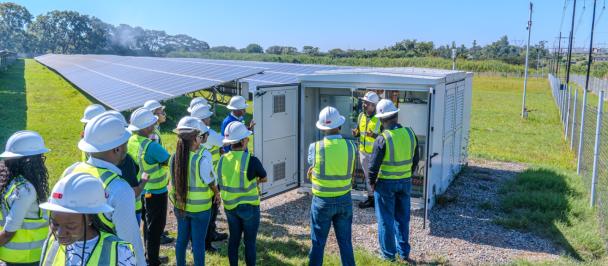New financial mechanisms are needed to link global finance to small-scale, low-carbon energy assets

Boy with solar lamp
NEW YORK - Linking Global Finance to Small-Scale Clean Energy, a new report released by UNDP's Climate Aggregation Platform today, finds that financial aggregation remains nascent in the distributed renewable energy sector. Still, it holds tremendous potential to enable global capital markets to finance energy access in developing countries because of the growth potential and rapid evolution of this sector.
"Financial aggregation has the potential to unlock new sources of capital investment for distributed renewable energy projects and businesses in developing countries," said Stefanie Held, Director of the Sustainable Energy Hub at UNDP. "Leveraging best practices from developed markets to fast-track the use of financial aggregation in developing countries will help unlock the much-needed finance for small-scale distributed energy projects."
Markets for financial aggregation require innovation and time to reach maturity, viability, and scale; a typical financial aggregation transaction is complex, involving numerous steps and multiple stakeholders. Complementary de-risking mechanisms such as concessional financing, guarantees, subsidies, or tax- exemptions, to name a few, are required before financial aggregation can unlock financing at scale towards energy access.
"Addressing the barriers highlighted in this report and supporting the structuring and deployment of innovative financial mechanisms such as aggregation, could help increase access to, and lower the cost of financing for energy companies” " said Eduardo Appleyard, Project Coordinator of Climate Aggregation Platform. – a Global Environment Facility (GEF) - funded project to promote the scale-up of financial aggregation for small-scale clean energy in developing countries.
While the report predominantly focuses on Sub-Saharan Africa, the findings broadly apply to all developing regions, especially those with underdeveloped financial markets.
The development of this report was led by the UNDP, prepared by experts from the Climate Bonds Initiative and includes an extensive literature review and dozens of interviews with relevant stakeholders, both from the product (sell) and finance (buy) sides.
To read the report click here.

 Locations
Locations

